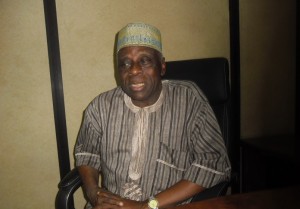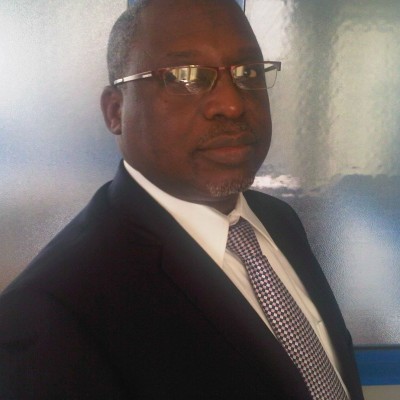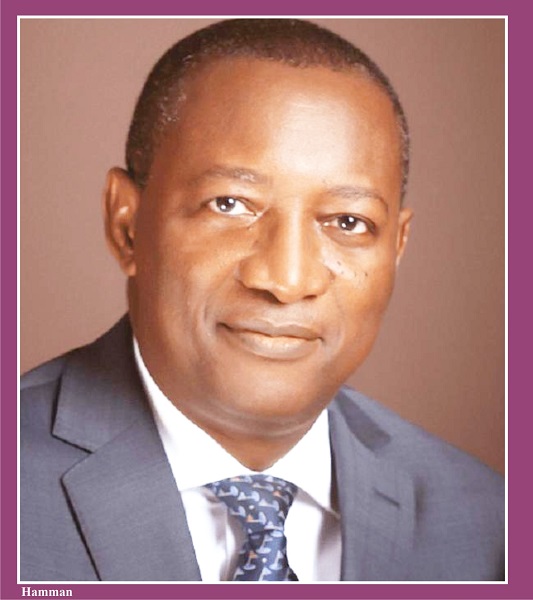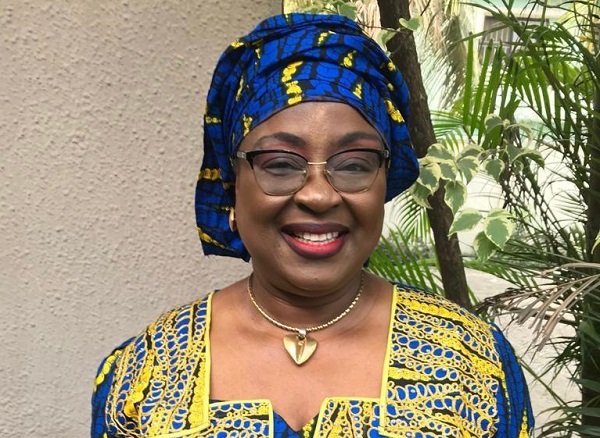How Residual Issues Affected Port Concessioning Agreement – Otunba Folarin

In this interview, the Chairman, Ports Consultative Council, Otunba Kunle Folarin speaks on different issues in the Nigerian maritime sector including the recent election of the Nigeria Ship owners Association (NISA), why the terminal operators have rights to extend the concession agreement as a result of the residual issues when they took over the port, the recent withdrawal of services by freight forwarders and clearing agents and how Nigerian maritime can upgrade to meet the world standard. Excerpts.
What is your take on the crisis rocking NISA election?
The Nigerian Ship owners Association (NISA) election should not have generated any crisis because from the report we received, it was openly contested and NIMASA was the umpire and there was no credibility crisis in terms of processes and procedures for the election, what probably can be ascribed to the different opinions expressed is that this is probably the first election held by the association on the backdrop that we are coming from a consensus executive in the past. So, it is a learning process for them to accept procedures and processes and inevitably the result of conducting the elections. Let’s put that aside, I think what the association should be concerned with is building consensus among the membership, mending fences where necessary and focus on the objectives in the mandate the association has given those who are going to run it. To show presence in the Nigerian maritime industry, to show presence in the freight generated by our international trade and also to add value to the Nigerian economy from the maritime sector. These are very demanding requirements which do not leave room for bickering over elections. If there is no election, it will not stop indigenous action in the maritime sector but it will only enhance it if they come with collective wisdom in how to move forward and I think that should be their concern now because election is a platform; it is not an instrument to achieve their ultimate goals.
Do you support the new executive as presently constituted?
Honestly, I support processes; if the party or individual emerged as elected is Mr. James and not Mr. John, it doesn’t really matter; what matters is that they should look for collective wisdom because the issues before them are very formidable; they are not to be put on the premises of what ideas individuals have to move the maritime sector forward and also to ensure that Nigerians gain from the freight in international trade generated by the Nigerian economy. We as observers are not much interested in the personalities that emerged; we are only interested in what is going to emerge as collective wisdom and for those who are going to champion the course of Nigerian shipping interest within the maritime environment in Nigeria.
Do you support the extension of port concessioning agreement?
Well, let us look at concessioning as principle that was derived from liberalisation. When government decided to privatise the cargo handling of the Nigerian maritime industry, I believe it is formed on certain fundamental principles. The first one is to increase productivity in Nigerian ports; the second one is reducing the cost of doing business in the Nigerian port and thereby making Nigeria a competitive first port of call in the region. Those are the underlining principles of liberalisation and concessioning the port. Now, when you look at that as a principle, how are you putting the modalities to achieve these principles? Because it can only be a win-win situation for Nigeria and the actors and key players in the maritime domain, we believe that was the first outing of Nigeria privatisation effort in the port and they were plus of course. Within a short period of time, the exercise was commenced and concluded.
Perhaps the key interest groups were not aware or wholly knowledgeable about the processes of concessioning and therefore, everybody agreed to move on. The perimeter fences demarcating the places were not completed at that time or done at all, I believe the auditing of the inherited facilities were not even concluded satisfactorily. So, when all these started emerging after the concessioning, the concessionaires said they never had a proper audit of what they met on ground or did not know where their areas started or stopped. So, there are some issues that were not settled before concessioning that were done after concessioning. You find out that some of the concessionaires or terminal operators could not operate properly until after two or three years after the concessioning because they were dealing with residual issues that could have been settled before concessioning.
What are the residual issues?
I will give you two examples; for instance, perimeter fencing, where does my area start or end? A lot of terminals or areas were still in contention with others that were not affected by the concessioning like boundary dispute which is key to their operations. For example, some inherited some facilities or services which they assumed to be in good order and condition and some had to raise eyebrow. So, the quay aprons were not workable, the quay walls are damaged and we can’t be putting ships here without risking collateral damage and claims from ship owners and some of them had to start working on quay walls. For many years, they were working on the quay walls that will make their terminals serviceable; they were also working on the quay aprons.
So, they are things that probably will not make it fully operational for another one or two years depending on how highly the terminal operators tackle it or how well they tackle it. But they insist on guarantees from the authorities that if they do certain things, they should be compensated with the expenses because they are supposed to meet a very functional infrastructure so that there could be more from the perspective of the terminal operators which suggests to us if a man has a concession for ten years and he spent the first two to three years dealing with residual issues, infrastructure which should not be his own concern, normally, one will be a bit more conscious of the fact that we need to take that into cognisance and therefore the issue of extension on the table. How long should that be is not an issue here because as I said, some can deal with that issue in one year, some in two years and can say in two years, I have coast home, I know my perimeter fencing is in order, I know that the quay apron is okay, quay walls are alright, other issues have been settled, from now, I can now say I have taken off. That is two years after so, they can now ask for an extension of two years. In all fairness, one will say yes but from now, it will be a different ball game because you are settled in and you know what you are settled in for. So, they should be able to give you that.
Recently, some terminal operators and shipping lines took Shippers’ Council to court for asking them to revert to the 2009 tariff. What is the take of PCC on this?
There are two ways to look at the issue. The hunter and the hunted; we have suffered for a long time in this industry without a commercial regulator, there was no commercial regulation so, there are two different issues here. So, in the absence of regulation, you will be excused for dealing with all issues regarding and covered by regulation by the way of dumb. You will deal with it the way you feel about it because there was no regulation per see. The second one is if there was no regulation and there is a regulator, a regulator can now put the processes on the table that now we are regulating; these are the issues we are going to regulate, spell them out. In other words, you have an issue whereby everybody is familiar with before you take any step as an umpire.
I made that explanation to give you the scope, so that the providers of port services will be aware of the issues that have come under regulation. And then the regulator will apply bench marks and say you may not charge more than this, you may charge lower if you are comfortable with it but you must not charge above the bench mark because it must come from a study, an appraisal based on facts and figures by the regulator who is supposed to be knowledgeable enough to set those bench marks. Secondly, there must be an engagement of the providers of these services and the consumers. If we are going to regulate A-Z, and we are going to fix appropriate benchmark from A-Z, the consumer must be aware probably, they will they say they are comfortable with that or they will say they have not gone far enough. Then you will put the providers on notice that from this date coming, we are going to expect you not to charge beyond the bench mark for each of the services outlined. When that happens, there could be a lot of arguments or disputes definitely or rejections from all sides but at the end of the day, the regulator will now say both sides have been heard but will peg their benchmark having studied the industry so that the regulation will not just come as a rule of the tom.
So, basically what we are trying to say is the process of engaging all participants. Yes, the regulator will have the power to fix the bench mark in question but he must also talk to the stakeholders because the consumers and the providers are the stakeholders. I believe from what we are seeing so far might be a dispute may be the process of engagement broke down and then the regulator went ahead or maybe there is no sufficient engagement of the stakeholders because in this process, you find that the consumers are not unhappy, they probably are happy with the bench mark. It is the providers that are raising dust. In order to summarise, we understand the matter is before the court, let them go back to the drawing board. I will tell you that negotiation for good or bad does not come easy; your aim must be a win-win solution because what is central to the industry is standard so that the providers don’t cut standard just to meet expectation of the consumers.
So, standard is very key in costing the provider’s charges at the same time, providers must be conscious of the fact that you do not charge more that the demand of the service, once you allow standard to reduce, you are endangering the competitiveness of the port and when the port is not patronised, everyone loses. The terminal operator will not have any container to deliver and the consumer will be receiving his container from somewhere else, possibly if we are not careful, the issue of cargo diversion will be on the table. If the terminal operators, the regulators and other stakeholders cannot agree on working the benchmark, and everybody becomes stubborn and sticks to his guns, what happens is that the cargo will still enter into the country; it will go beyond the Nigerian terminal operators to other terminals outside the country. And the consumer will have to collect his cargo outside the country and bring it into the country and in that case who loses? Because of breakdown of dialogue, you have lost the traffic, the ships due will be lost to the Nigerian Ports Authority, the cargo handling charge will be lost to the stevedores, the delivery operations and charges will be lost to terminal operators and of course, the consumer will pay the rate applicable at the point of destination which is going to be outside the country. So, it is very important to see that implication of a breakdown of dialogue and reaching a consensus on this matter. The beneficiary will only be cargo handled in the neighbouring countries. That is my take on that.
You mentioned some residual issues that the concessionaires met on ground before they kick off, could we say that the issue of arbitrary charges by shipping lines and Terminal Operators was as a result of these residual issues?
You are trying to turn me into a soothsayer or a magician or a prophet but I am neither any. But I must agree with you that residual issues have a part to play in cost delivery of cargoes in Nigerian Ports, not substantially but they have a role to play. If you have to deal with issues you met on the ground that should have been settled before from your own resources, certainly it is expected that you will want to recover your cost. It forms part of your operating cost except where I believe of course that somewhere along the line the port also will have agreed to reduce some of these costs. Immovable property like the quay apron that is where the Lorries park to receive cargo from the ship, that’s where the ship berths. Or the Key walls, where the ship will moor alongside the badge, those don’t belong to Terminal Operators; they belong to the Nigerian Ports Authority, because they are the landlords, they are still the owners of the Port in spite of the concessioning. Secondly if the ports are not sanitised against other charges chargeable to the Terminal Operators, it becomes something they have to bear themselves and of course they have borne it. I am just trying to answer the reason for that.
Is this part of the Concessionaires’ agreement?
Well, the agreement is that you are working on a berth, a concession area given to you which is your area of work. That is why the issue of perimeter fencing came out because it divides one area from the other. So, you now go into your room let to you by landlord and finds out that the roof is leaking, the windows are broken, you cannot sleep in that room because you think somebody will come to harm you through the window or rain will fall and spoil your property, you certainly cannot use the room the way you met it when you got there, you will probably rectify the roof and fix the windows and you have paid your rent already, what do you do? If you are probably using the room for business, if anyone comes to buy something, you will have some 2 or 3 Naira added to whatever the person is buying unless the landlord says he will reimburse you for the cost of fixing the roof and the windows.
Does that mean that the Terminal Operators are right to increase terminal charges?
It is a commercial decision; you can play Father Christmas or say no I have to recover this cost. It is your decision, it has to be a corporate decision, some can waive it and say well it does not matter and some can say no, I am not going to waive it. That is why we need to seek a uniform pricing of Port Services whereby if I take my container to Terminal A, I am going to pay the same handling charge if I am going to take it to Terminal C, a container is a container. That is why a benchmark has no merit too because the service providers must look at benchmark from two perspectives; are we comfortable with it, can we still add a little margin to it or we are going to think whether to operate on a benchmark or not? At the same time, it will take many years to serve the benchmark to their customers, stakeholders, importers. If they have a benchmark that is fixed, maybe at N3600 per box, then the other party will say N3400, they will deliberate on it and come to a conclusion. The regulator also is helping them to maximise their margin whereas without him, it will probably be lower but may be the regulator now looks at it as to sustain in the industry over a long time, let’s fix this amount. And don’t forget the benchmark is not sacrosanct, it is not for all seasons, and it could be reviewed giving changes in the environment, changes in the circumstances, and changes in Port costs.
So, it is a very dynamic process, I believe that even next year, it will change to a higher level. After all, there are empirical indicators in the economy like inflation for example, some countries use inflation as a tool to raise charges, to review charges. It could work for both sides that is what I am trying to emphasize here, if the regulator fixes it based on the level of the inflation in the country, he determines this with the Terminal Operator. And if the inflation rate is lower and the cost evaluation for the regulator is lower, then it is good for the importer so that the Terminal Operator will not be thinking of recouping his investment in one year, he has to be patient to recoup over time.
These charges are telling on the Importers, Freight Agents, and it trickles down to the consumers. Is it supposed to be so?
I agree with you but if you think back to what I said initially, and I said: One, short of absence of any commercial regulation and secondly there was no commercial regulator until now , so when things are new sometimes you fight it until you say , this is good. What am I trying to say? It is new, this is the first time officially a regulator is in place.
What do you have to say on Freight forwarders suspension of commercial activities at the APMT for two weeks now?
Well, Freight forwarders have issues from time to time and we all know. They are at the last rung of the ladder; they represent the importer who services the consumer, so it is a chain, what we call service supply chain. In this chain the freight forwarders are the arrowheads to operations, cargo delivery, and cargo service and so on. So the issue they have with APMT, is a long running thing, it is not only about the benchmark, so they are all issues that have been there, and I believe it will be resolved , this is not the first time they are shutting down Terminals . Once they resolve the issues, see your second hand car for example, was coming up, the issue of SON and others are going on. But I believe that what we are seeing in the industry needs a permanent solution mechanism which could be supplied by arbitration. In arbitration, you don’t have to go to court, you can all agree that we are going to agree to an outside mediator, the man on the sidelines looking at what is playing out and we now say, let us be fair, let us sheathe our swords, make sure everybody gets a fair deal. We need the Maritime arbitration.
Recently, you travelled abroad for a conference, what was it all about?
I am a professional and I must go where the profession is practiced, I am also an academic and I must go were the knowledge is expressed. The sea trade conference is a worldwide annual event and this year is not an exception. A gathering of over 300 exhibitors, over 500 decision makers in the Maritime world can only be described as an extraordinary opportunity to network, to showcase the capabilities of our region and if possible by extension our country. And also to be informed of the latest developments and processes in the maritime sector and I must tell you, it was a very good opportunity to enhance our knowledge and also create awareness of what is going on throughout the world.
A very small example is that people don’t use cameras in the world any longer but we are still using it in Nigeria, I use camera too. In fact, there, I didn’t see more than two cameras over thousand people milling around the place. They use Ipad and some use their phone cameras. The conference was held in Dubai if you see the type of development that is coming up, it is something else. There are no manual operators again in the port. The maritime community is connected, there is interconnectivity. Face to face contact is reduced to almost zero. You can sit in the confines of your office and take delivery of your cargo. You are connected with all the processes that have to do with your cargo. Customs, banks, Port Authority, Forwarding agents, warehousing, transportation, are connected, you know where everybody is and the extent they have reached in connection to your cargo. And it will not fail a minute to the stipulated time. That is interconnectivity that gives you knowledge. You don’t need to go to the agent; he does not need to tell you anything you will know already you can track the movement of the ship.
If maybe, it is in Liberia now, you can know that from the Port Authority of Liberia and you can calculate accurately when it will get to Nigeria. If your cargo is released and the agent said that it has not been released that you should go and bring N1 million, you will know that he is lying, you will see everything instantly by the touch of a button in your office. We need to install interconnectivity process in Nigerian processes. Going to Apapa now is a nightmare for anyone. I can take delivery of my goods here in my office if there is interconnectivity. Interconnectivity reduces the chance of corruption, low processes is reduced and creates the avenues for information gathering, where and who to talk to, that is one point we learnt there. At a press of a button, bulk cargo can be transferred from a ship to the conveyor bay right to the stylus where it is going. For instance the Emirate government is going to invest about $ 8.56 in port expansion development, because they have protected the number of ships coming in the next five years and they want to provide for that. They don’t want to wait until their port is congested before the expansion. They also thought about the implications of more ships coming to their port and have made provisions for that especially in the road network and the increase number of trucks that will be coming to the port.
We should also plan ahead, so that we will be able to foresee what Nigeria international trade will generate overtime. Then we need to look at training and education that this man who is doing business with wheelbarrow will be phased out in five years time. Where will he work, we need to train him for other competences so that he will not be jobless, we need to mode intermodal transport into the port system. Receiving cargo by only trailers is not the only way. Why not by barges, why not by railway? We have to introduce other means of evacuating cargo from the port so that we don’t congest the corridors of the port. We need to look at working 24 hours non-stop. Port infarct structures should be upgraded. We need to look at illuminating the whole port so that we don’t work in darkness.
We need to look at welfare, those who are going to work in the port for 24 hours, where will they rest, eat toilet facilities. We have to expand our port because cargo volume is increasing. We have to Plan for welfare, for productivity, invariably planning for good standard of performance. The cost of doing business will be controlled. What are the gains of that procedure, making competitive, attractive, more cargoes to the Nigerian Ports, creating employment for the people and more service and goods for industrial development.







